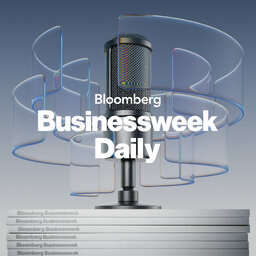2024 Will Mark End of Post-Pandemic Economy
Allison Schrager, Senior Fellow at the Manhattan Institute, explains why the trade-off between bringing down inflation and harming growth will come back with a vengeance for the economy. Bloomberg Technology Co-Host Ed Ludlow breaks down fourth-quarter vehicle delivery numbers for Tesla and Rivian. Dan Ives, Senior Equity Analyst at Wedbush Securities, shares his outlook for Apple and Tesla. And we Drive to the Close with Rich Weiss, CIO of Multi-Asset Strategies at American Century Investments.
Hosts: Carol Massar and Tim Stenovec. Producer: Paul Brennan.
In 1 playlist(s)
Bloomberg Businessweek
Listen for reporting from the magazine that helps global leaders stay ahead. Hosts Carol Massar an…Social links
Follow podcast
Recent clips

Trump’s Global Tariffs Struck Down by US Supreme Court
27:11

Trump Has Called Bluff on the Era of Good Corporate Citizen
11:22

A Blue Owl-Linked Structured Note Is Now Worth Just 47 Cents
33:38
 Bloomberg Businessweek
Bloomberg Businessweek